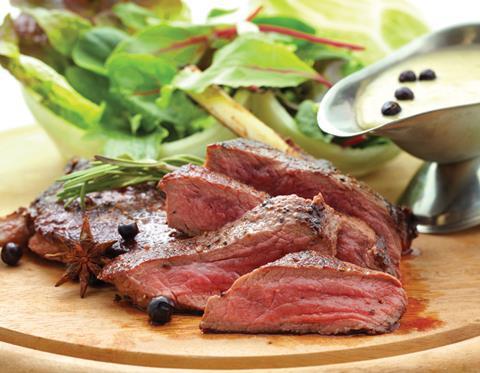The Partnership for Action Against Wildlife Crime Scotland (PAW Scotland) is asking foodservice operators to check where they get their venison, as part of the battle against illegal deer poaching in Scotland.
The stakeholder group, whose members include the Scottish Government and Police Scotland, has made the call to ensure that restaurants and caterers are not breaking the law or endangering their customers’ health.

Companies are being asked to ensure they only purchase from a vendor with a Venison Dealers Licence (VDL), which is required by law under The Deer (Scotland) Act 1996 to sell venison.
If a purchaser is unsure whether a vendor has a VDL then they can enquire with their local authority who are obliged to keep a register of licenced sellers.
Purchasers are also being warned that where deer have been knowingly killed unlawfully and then sold, both parties – vendor and purchaser – could face prosecution.
They can also check the type of deer they are buying, with different species only available during permitted stalking seasons in the calendar. Venison made available in periods outside of this calendar may also raise suspicion.
Penalties for the purchase, sale or exchange of venison, which is known or suspected to have been killed illegally, include fines of up to £2,500 and sentences of up to three months in prison.
Police have the power to inspect premises or vehicles if they have reasonable grounds to suspect an offence has been committed and seize carcasses where necessary.
Scottish Natural Heritage and police also have the right to inspect transaction records which should be kept by licensed venison dealers.
Cabinet secretary for the Environment, Climate Change and Land Reform, Roseanna Cunningham, commented: “Going into the festive season we are urging people to check the labelling and licensing of venison to help us tackle wildlife crime and crackdown on illegal poaching.
“We are committed to ensuring the highest welfare standards for all animals, including those in the wild, and encourage everyone to notify Police Scotland if anyone is suspected of breaking the law."
Police Scotland wildlife crime coordinator, Sergeant Andrew Mavin, said: “Deer poaching is a national wildlife crime priority for Police Scotland.
“Those involved in poaching have little or no concern for the welfare of the animal nor are they concerned with maintaining the necessary levels of hygiene required when venison enters the food chain. It is important that people know that their venison was sourced legitimately or they could be committing an offence."
This story was originally published on a previous version of the Meat Management website and so there may be some missing images and formatting issues.












